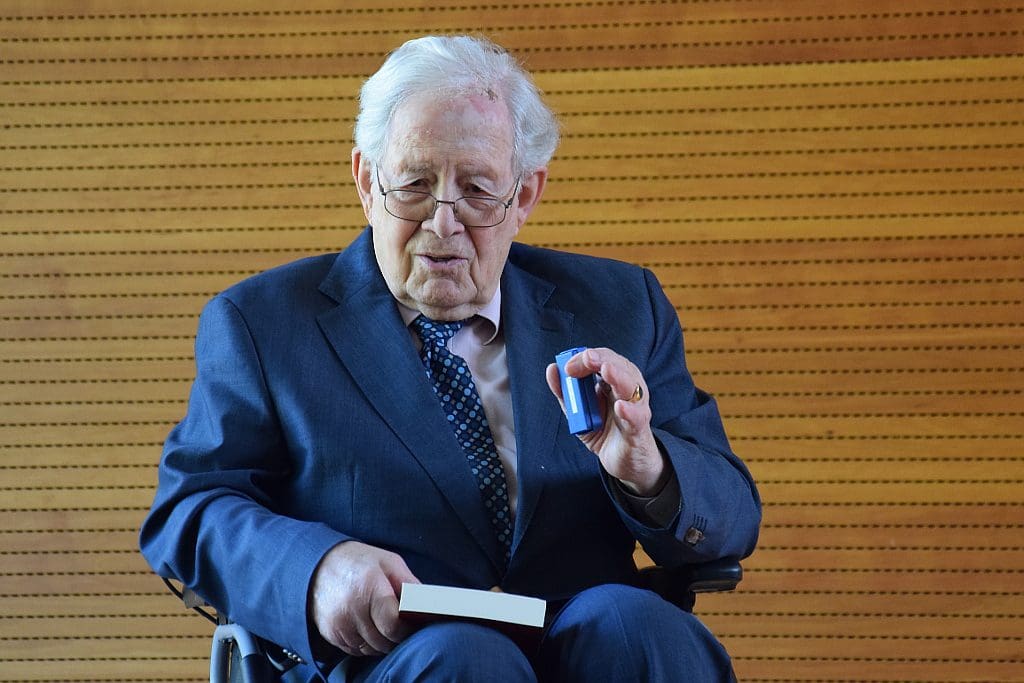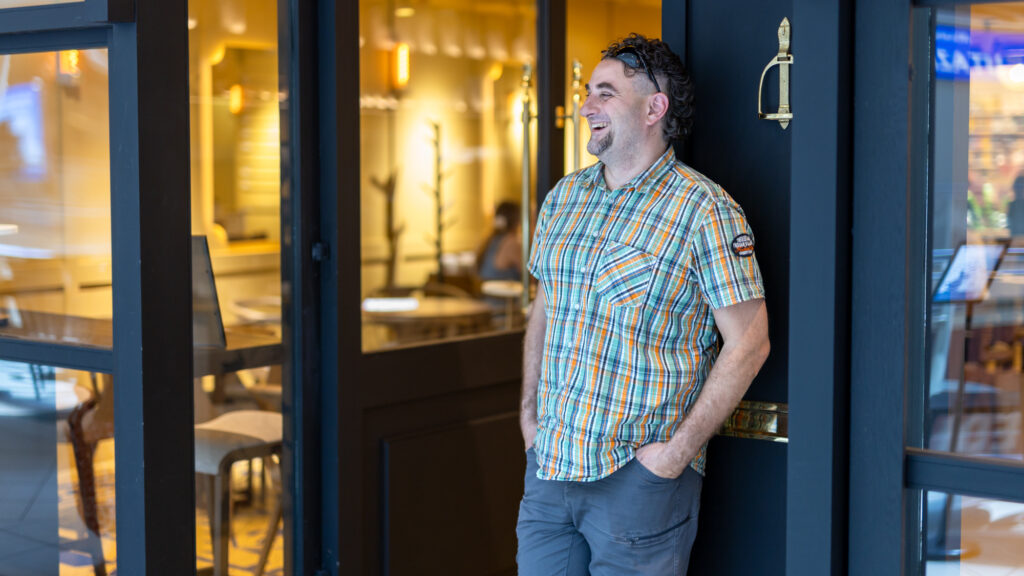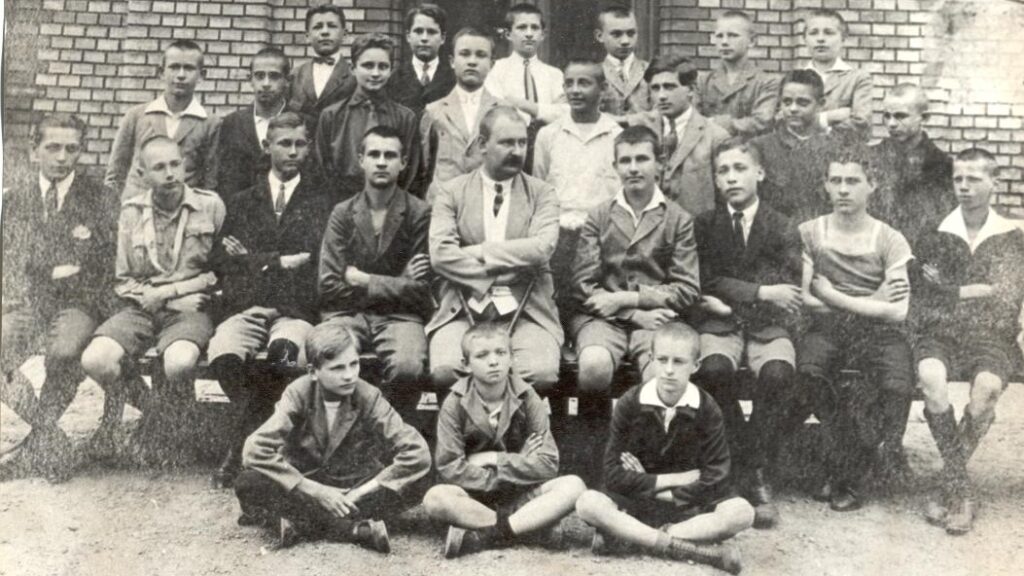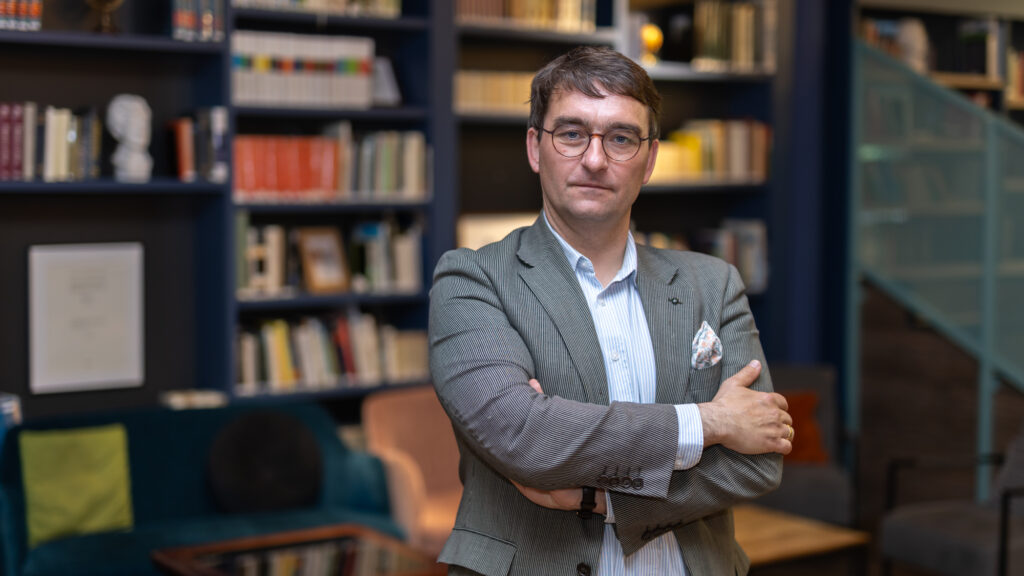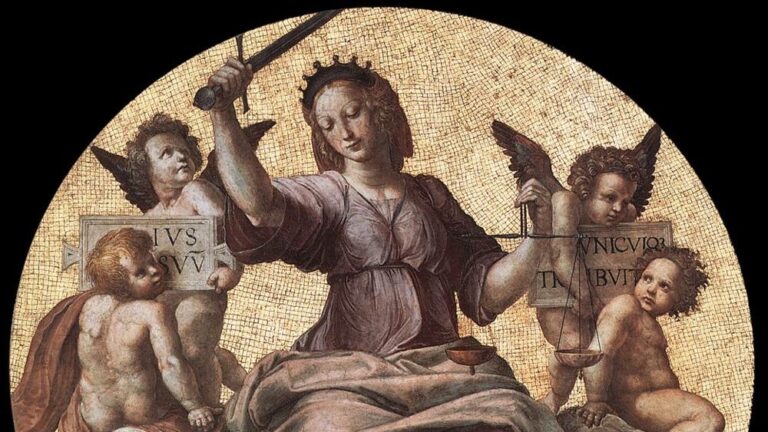What approach should Christians take to modern politics? What are their obligations in contemporary public life? Which Christian values should be endorsed in modern democracy and which political instruments may be used to further those values? Several Christian philosophers, theologians, and politicians have in the past sought to provide answers to these crucial questions. Our series of articles seeks to rekindle interest in those authors, firstly because we believe that they receive less attention than they deserve, and without forgetting the extensive academic literature on them (since most of them attract serious scholarly interest) we argue that their ideas are underrepresented in public discourse. Secondly, we believe that to answer the questions raised above, one should be able to study acknowledged theologians and philosophers who are well-versed in the wisdom of the Christian faith and base their political arguments on it. Consequently, the political insights of modern theologians will be presented with a special focus on the Christian origins and sources of their ideas. We hope that these articles will increase public interest in these inspiring figures.
The first article in this series examined the anti-modernism of the Neo-Calvinist theologian Abraham Kuyper, a former prime minister of the Netherlands. The second article focused on Reinhold Niebuhr, one of the most influential twentieth-century American protestant pastors. The third article presented a brief introduction to the political thinking of an eminent contemporary Catholic theologian, Joseph Ratzinger, the subsequent Pope Benedict XVI. In the fourth article, we dealt with the ‘new political theology’ of Johann Baptist Metz. Metz, like Ratzinger, was also a Catholic, a German and a theologian. In the last article, the insightful ideas of an essential American protestant theologian from the last century were recalled.
These three terms we used in connection with Johann Baptist Metz—Catholic, German, theologian—could have been partly true of the man we shall now examine. Ernst-Wolfgang Böckenförde, however, was no theologian. He was, nevertheless, a devout Catholic, and a German who had a significant influence on the development of West German legal and state theory in the twentieth century. We have already touched on the person of Böckenförde in a brief review, as an English-language translation of several important works by this influential thinker, who passed away in 2019, was recently published under the title Religion, Law and Democracy. In our review, we attempted to elucidate Böckenförde’s far-reaching thought by examining three of the studies published in that volume. Now, however, we would like to highlight a particular detail of Böckenförde’s thinking—specifically his conception of the relationship between Catholics and the state. On this basis, we believe there is a place for him in our series, even if we can only call him a ‘theologian’ in quotation marks.
We generally seek to avoid getting bogged down in biographical information. In the case of Böckenförde, however, it is important to know that he cannot be dismissed as a mere armchair scholar: from 1983 to 1996 he was a Federal Constitutional Court judge, and so had considerable practical as well as theoretical experience. During his studies, he obtained two doctoral degrees, one in law and one in history. During his years at the University of Münster, he came into contact with Joachim Ritter and the Collegium Philosophicumwhich he organized. In addition to Böckenförde, the ‘Ritter School’ counted among its members Hermann Lübbe, Odo Marquard and Robert Speamann, who also played a significant role in shaping 20th-century German thought.[1] Jens Hacke, an associate professor at the Humboldt University in Berlin, has argued that an understanding of the Ritter School is indispensable when examining the intellectual history of the Federal Republic of Germany, which ‘can no longer be limited to the history of the Frankfurt School’.[2]
Böckenförde’s presentation examining the relationship between Catholics and the state is linked to another ‘self-generated’ initiative
In 1964, Böckenförde gave a lecture at the Ebracher Ferienseminare, founded by Ernst Forsthoff, entitled ‘The Rise of the State as a Process of Secularization’. As Jan-Werner Müller, a professor at Princeton University, put it, the title of the lecture ‘did not exactly appear upbeat’.[3] It was during this lecture, however, that Böckenförde formulated the theorem that has been quoted by countless thinkers and political scientists over the past nearly 60 years, and has become known as the Böckenförde Paradox: ‘The liberal, secularized state is sustained by conditions it cannot itself guarantee’.[4] But how does this paradox relate to Catholics?
In the lecture, Böckenförde basically presented the historical process by which the modern state was formed through the gradual separation of church and state, from the Investiture Controversy to the French Revolution. At the end of this wide-ranging historical review, in the concluding section of the lecture, he formulated his question about the foundations of the state, then gave his answer in the form of the paradox quoted above. It is important to note that Böckenförde was not claiming that the homogeneity underpinning the modern state depended solely on Christianity.[5] Although his study of the process of secularization focused on Christian motifs for the foundations of the state, when looking for a force to ensure the homogeneity of the state, he saw Christian or rather religiously inspired morality as only one option among many. Böckenförde presented various possibilities for new forms of homogeneity, such as a ‘natural morality’, the nation, or a safeguarding of life through a eudaimonic citizens’ ethic. Böckenförde held that the political unity of the people was not a natural given, but must be continually constructed. However, Christians also have an important role to play in this construction.
Böckenförde was a devout Catholic, whose reflections on social cohesion and the moral foundations of society and the state have a transcendent dimension. Interestingly, this commitment never prevented him from continually criticizing the Catholic Church. Even before his 1964 lecture he was involved in heated debates over the concept of democracy in the church.[6]
It is well-known that the Second Vatican Council (1962–1965), which focused on the issue of religious freedom, was being held at the time Böckenförde gave the lecture referred to above. The declaration beginning with Dignitatis humanae was adopted at the last session of the Synod on 7 December, 1965, and establishes the church’s position as the guarantor of religious freedom. Thus, the period between Böckenförde’s lecture (1964) and its appearance (1967) was the ‘hour of truth’ for the Böckenförde paradox.[7]He refers to this key opportunity in his lecture, with reference to historical examples. In connection with the Edict of Nantes, he cites the papal declaration, according to which ‘that was the worst thing in the world’.[8]With regard to Hobbes, he writes that ‘recognition of the sovereign decision-making power of the state does not entail any denial of belief.’[9] Concerning nineteenth-century ideas of a Christian state, he quotes Marx: ‘The so-called Christian state is the Christian negation of the state, but by no means the political realization of Christianity.’[10] These are, in fact, critical remarks directed against contemporary Catholics, and particularly against the church, and he ultimately encourages believers to embrace liberal democracy. As he puts it in his concluding sentence, ‘Christians no longer see this state, in its secularity, as something alien, hostile to their faith, but as a chance for liberty, the preservation and realization of which is also their task.’[11]
It has been 56 years since the Synod, and the question now is, have Christians succeeded in befriending the secular state? In any case, we know that Böckenförde received with great enthusiasm the Synod’s final declaration, which, although it stated that the Catholic and Apostolic Church was the only true religion, at the same time declared that this was not incompatible with religious freedom. With this, Christians’ ‘history of suffering’, as Böckenförde puts it in another work, had finally ended in tolerance. And this gives every Christian the opportunity not only to accept the liberal state, but to become an active, engaged citizen.
[1] Mark Schweda, Joachim Ritters Begriff des Politischen. Carl Schmitt und der Münsteraner Collegium Philosophicum (Joachim Ritter’s concept of the political. Carl Schmitt and the Münsteraner Collegium Philosophicum), in Zeitschrift für Ideengeschichte. Volume: 4, Issue: 4 (2010), 91–111.
[2] Jens Hacke, Philosophie der Bürgerlichkeit. Die liberalkonservative Begründung der Bundesrepbulik (Philosophy of Citizenship: The Liberal-Conservartive Foundation of the Federal Republic), Göttingen: Vandenhoeck & Ruprecht, 2006, 11.
[3] Jan-Werner Müller, Was hält Demokratien zusammen? (What holds democracies together?) In Neue Zürcher Zeitung (26.08.2017) https://www.nzz.ch/feuilleton/das-boeckenfoerde-diktum-was-haelt-demokratien-zusammen-ld.1312681?reduced=true , accessed 30.11.2021.
[4] [4] Ernst-Wolfgang Böckenförde: The Rise of the State as a Process of Secularization. In. Mirjam Künkler – Tine Stein (eds.): Religon, Law and Democracy. Oxford: Oxford University Press, 2020, 152–167.
[5] Rudolf Uertz: Die Christliche Demokratie in der historischen und sozialwissenschaftlichen Forschung. Eine Problemskizze (Christian Democracy in Historical and Social Science Research. A sketch of the problem.) in Historisch-Politische Mitteilungen, Volume: 2, Issue: 1 (1995), 1–24.
[6] Susanna Schmidt–Michael Wedell: Preface, in Susanna Schmidt–Michael Wedell (eds.): Um der Freiheit willen… Kirche und Staat im 21. Jahrhundert (For the sake of freedom … Church and State in the 21st Century). Freiburg – Basel – Vienna: Herder, 2002, 11-14.
[7] cf. Patrick Bahners: Der Unsinn der Zivilreligion (The nonsense of Civil Religion), In Frankfurter Allgemeine Zeitung (19.05.2008.), https://www.faz.net/aktuell/feuilleton/buecher/rezensionen/sachbuch/der-unsinn-der-zivilreligion-1550342.html 30.11.2021., Martin Ingenfeld: Das Wagnis der Freiheit: Das Böckenförde-Diktum und seine Implikationen für eine moderne Demokratie, (The Risk of Freedom: the Böckenförde Dictum and its Implications for a Modern Democracy) (04.07.2009.) https://www.gsi.uni-muenchen.de/forschung/forsch_zentr/voegelin/publikationen/studierendensymposium/ingenfeld_b__ckenf__rde.pdf 30.11.2021.
[8] Böckenförde: The Rise of the State as a Process of Secularization, 160. (footnote 29)
[9] Böckenförde: The Rise of the State as a Process of Secularization, 163.
[10] Böckenförde: The Rise of the State as a Process of Secularization, 164.
[11] Böckenförde: The Rise of the State as a Process of Secularization, 167.

